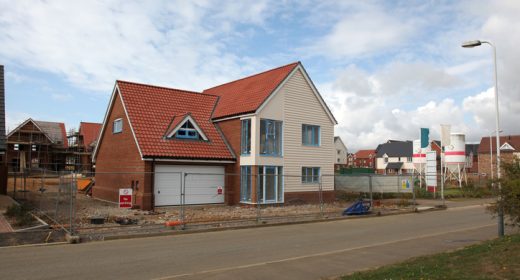While leasehold is a common form of tenure for flats, it is increasingly applied to new build houses as well. So whether you’re thinking of buying a house which is leasehold – rather than freehold – or have realised your house is leasehold now that you’ve moved in, we look at what you need to know before you go any further.

I own a leasehold house: what are my options?
First off, you should consider suing your conveyancing solicitor for professional negligence
This seems like a drastic first step, but if you weren’t alerted to the fact your house was leasehold then your solicitor or conveyancer was negligent in not making you aware. You’ll need to be up for a battle; after all they do this for a living. It is not enough to believe or feel that you were inadequately advised, it is all about how much proof you have.
Your first job is to get a copy of your file from the solicitor who advised you when you bought your house. You can do this yourself by simply writing to your solicitor or you could instruct a solicitor to do this for you. Be prepared to wait: your solicitor has to provide you with this report but there is no legal timeframe for them to do this by.
The most important document is something called your “Report on title”. This is the report on the pros and cons of you buying this property. This is the document that could give you the proof you need to sue your conveyancing solicitor. The most important bit of your file to look for is the part where it explains the ground rent ground in your lease and the implications it will have for you in the future.
You will also need to check all the documents in your file as well to see if any other documents your solicitor provided you in your report included advice on the ground rent of the lease, and:
- If there is no mention of ground rent or their implications you could have a very good chance of suing.
- If your file shows the solicitor simply states your ground rent is “£250 per annum” with no other advice you may still have a case to win.
- If it says “Ground rent is £250 and doubles every 10 years” but does not offer any other advice you may still win but a solicitor will try to assert they did advise you.
- If your file says “Ground rent is £250 doubling every 10 years and this could be bad” then your chances of success are reduced even further as the solicitor will insist they had properly advised you.
Second, consider buying the freehold of your home
Broadly speaking there are three different ground rent schedules for leasehold houses.
- Doubling ground rent every ten years. This is by far the worse one and is considered onerous.
- Doubling every 25 years. This is not as bad and is not considered onerous.
- Linked to RPI. This essentially means the ground rent you pay is linked to inflation and technically you pay the same amount each year forever more.
You need to keep in mind however that all these ground rent options are totally needless and exist for the sole purpose of creating an asset class for the ground rent investors. By buying your freehold you could free yourself from these unpredictable and unfair fees. Under the 1967 Leasehold Act you have a legal right to force your freeholder to sell you the freehold of your home.
To work out how much it should cost you need to calculate the total ground rent you owe your freeholder for the remainder of your lease, taking into account inflation and the capitalisation rate. We advise you get dedicated advice from experts in calculating a ballpark figure before you formally start the process.
But buyer beware: Avoid informal agreements with the freeholder
Once you know where you stand on likely cost of buying your freehold, you will want to contact the freeholder to get the process started. At this point your freeholder may offer you the opportunity to bypass the process of buying a freehold using a formal process with lawyers and may suggest an informal agreement. This almost always leads to a worst deal for you the leaseholder and should be avoided at all costs. Remember your freeholder has bought your freehold to make money.
Furthermore, buying your freehold ‘informally’ from your freeholder places you outside any legal protection you would have if you acted inside the 1967 Leasehold Act. Your freeholder can negotiate the very best deal for themselves on the freehold transfer and there is nothing you can do to remove anything from the contract you don’t like, it’s a take it or leave it deal.
Finally, buy your freehold as part of a group using your statutory legal right under the 1967 Act.
The very best thing you can do is to buy your freehold as part of a group with your neighbours acting at the same time. The bigger the group the more money you will save. There is an economy of scale when you act as a group but it will also give you formidable negotiating power against your freeholder when trying to agree a fair price.
Source: www.hoa.org.uk